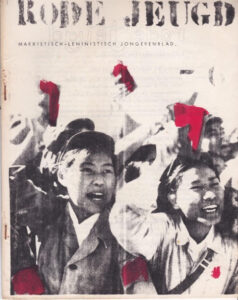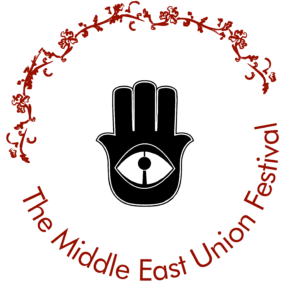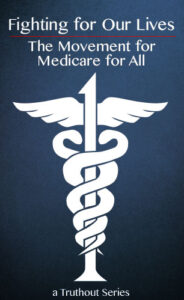De rode loper naar Peking
 ‘Harde acties, die kunnen verschillen van het opsluiten van een directeur van een bedrijf, het bezetten van een fabriek, om het kapitalistische systeem in desorganisatie te brengen. Dat zou ook kunnen door sabotage bij belangrijke bedrijfsafdelingen, denk aan Philips.’ – Willem Oskam, televisie-interview
‘Harde acties, die kunnen verschillen van het opsluiten van een directeur van een bedrijf, het bezetten van een fabriek, om het kapitalistische systeem in desorganisatie te brengen. Dat zou ook kunnen door sabotage bij belangrijke bedrijfsafdelingen, denk aan Philips.’ – Willem Oskam, televisie-interview
Nieuwezijds Voorburgwal, jaren negentig
De Nieuwezijds Voorburgwal in Amsterdam, begin jaren negentig. Achter de kassa van Modern Antikwariaat Van Gennep staat een norse man met het postuur van de Dokwerker.
Zijn enige politieke activiteit is nog het afrekenen van verramsjte boektitels over China, de Sovjet-Unie en van marxistische denkers als Antonio Gramsci en Alexandra Kollontai. Ooit was hij letterlijk en figuurlijk als voorzitter het boegbeeld van de Rode Jeugd, de revolutionaire jongerenorganisatie die in de tweede helft van de jaren zestig en begin jaren zeventig aan de stoelpoten van de gevestigde orde in Nederland knaagde. Willem Oskam heet hij, bijgenaamd Rooie Willem, of Dikke Willem. Zijn politieke activiteiten heeft hij achter zich gelaten en ingeruild voor een fervent supporterschap voor Ajax.
Nieuwezijds Voorburgwal, 14 juni 1966
Amsterdam, de Nieuwezijds Voorburgwal, 14 juni 1966. Een dag eerder is in Amsterdam het Bouwvakkersoproer uitgebroken. Bouwvakker Weggelaar sterft tijdens een demonstratie.
Getroffen door een steen, gegooid uit eigen gelederen, zo meldt De Telegraaf. Vanwege deze – onjuiste – berichtgeving proberen woedende bouwvakkers de volgende dag met emmers zand het gebouw van de krant binnen te dringen. Het zand moet in de persen, het drukken van de krant moet gestopt worden. Een vrachtauto en rollen krantenpapier worden in brand gestoken. Op dat moment rijdt Willem Oskam in het busje van zijn baas over de Nieuwezijds.
Hij parkeert het busje langs de kant en dringt te midden van bouwvakkers het gebouw binnen. Telegraafmedewerkers proberen de bouwvakkers tegen te houden. Ver komen de mannen niet, de persen zijn onbereikbaar. Wanneer Oskam later die dag het busje aflevert bij zijn baas, krijgt hij te horen dat hij de volgende dag niet meer terug hoeft te komen.
Havenarbeider
Willem Oskam (1943-2000) was de zoon van een havenarbeider uit een communistisch nest. Zijn vader was lid van de communistisch georiënteerde Eenheids Vakcentrale. Thuis werd trouw De Waarheid gelezen. Zijn jeugd offerde hij naar eigen zeggen op aan zijn ideaal: het communisme.
Oskam vertelde later dat hij tijdens zijn fanatieke, revolutionaire jaren iets weg had van een Jehova’s Getuige. Ook tijdens zijn meest fanatieke jaren woonde hij bij zijn ouders op zolder en voor ‘lonende relaties met het andere geslacht’ had hij simpelweg geen tijd. Hij werkte in Amsterdam als havenarbeider, als chauffeur en later op het Internationaal Instituut voor Sociale Geschiedenis (IISG). Hij was actief in de CPN en maakte propaganda voor het communisme. Hij zorgde dat hij politiek geschoold werd door de werken van Lenin, Stalin en Mao Zedong te lezen en bouwde zo een indrukwekkende kennis over het marxistisch- leninistisch gedachtegoed op.
Spruitjeslucht
Tot diep in de jaren vijftig was Nederland een betrekkelijk ouderwets land. Men bleef over het algemeen trouw aan de tradities en gewoonten die al voor de Tweede Wereldoorlog hadden gegolden. Hoge geboortecijfers en frequent kerkbezoek werden in stand gehouden door de gevestigde katholieke en protestantse zuilen. De lonen waren relatief laag, arbeidsonrust was er nauwelijks en van emancipatie hadden nog weinigen gehoord. Weinig vrouwen werkten buitenshuis. De vaderlandse politiek leek zich tijdens de wederopbouw grotendeels volgens het vooroorlogse stramien te herstellen. In de jaren zestig echter ontstonden maatschappelijke en politieke bewegingen die zich wilden ontdoen van de benauwende spruitjeslucht en het maatschappelijke patroon van de jaren vijftig. Hoewel betere onderwijskansen, zorg en ouderdomsvoorzieningen voor iedereen een zorgeloze toekomst beloofden, bleken vooral jongeren zich niet altijd meer te kunnen vinden in de voorgespiegelde toekomst met een huis, gezin, werk, auto en televisie. Het vooruitzicht een leven te leven net als je ouders, met ingebakken omgangsvormen – een eentonig en gezapig bestaan – leek velen toch niet zo aanlokkelijk.
Verzet
Halverwege de jaren vijftig bood de rock-‘n-roll zulke jongeren een uitlaatklep. Door te genieten van andere muziek dan waar je ouders naar luisterden, ontstond de mogelijkheid je af te zetten tegen de leefwijze en opvattingen van ouders en andere opvoeders. Een andere haardracht en andere kleren onderstreepten dat gevoel. In de jaren zestig werkte de popmuziek als een soort slinger om het aanwakkerende verzet tegen de opvattingen van ouders, leraren, gezagsdragers, dominees en priesters, te verwoorden.
Mede onder invloed van de Koude Oorlogsdreiging en de oorlog in Vietnam ontstond in de jaren zestig onder jongeren het streven naar een andere inrichting van de samenleving. Het was vooral de beweging Provo die uiting wist te geven aan het groeiende besef dat de samenleving fundamenteel anders ingericht moest worden.
Josef Meri – Pilgrimage To The Prophet Ezekiel’s Shrine In Iraq: A Symbol Of Muslim-Jewish Relations
Prior to the founding of modern nation states and the evolution of nationalist thought among Jews, Christians and Muslims in the Middle East and North Africa, pilgrimage to shared shrines was a ubiquitous phenomenon up until the 20th century. However, today one still finds Jews making pilgrimage to shrines of the Talmudic sages and saints (z. addiqim) in Israel, particularly in the Galilee and Beer Sheva, and in Morocco, and Muslims to shrines associated with the prophets, and the Companions and Followers of the Prophet Muh . ammad as well as other holy persons, particularly in Egypt, Morocco, Syria, Iraq and Jordan.
This article will not deal with the theological dimensions of the veneration of holy persons or the arguments for permitting or prohibiting visiting the shrines of holy persons but rather with an aspect of saint veneration which historically attracted mainly Muslims and Jews: the veneration of the Prophet Ezekiel (Arab. H. izqīl, Dhū’l-Kifl) in Iraq.
Pilgrimage to Ezekiel’s shrine in Iraq is unique in that some of the most detailed historical accounts concerning it have been preserved.
The shrine of Ezekiel is found in the village of Kifl which lies 77 miles south of Baghdad in a largely Shi’i region and was one of the most significant places of pilgrimage for Jews and Muslims, especially Shi’is until the first half of the 20th century. As is commonly the case with other prophets and holy persons, multiple shrines were dedicated to Ezekiel. A second shrine existed in Babylonia and a third in Persia. Yet neither was as well documented as the shrine at Kifl, owing to the fact that it was a regional pilgrimage centre attracting Jews and Muslims from as far away as North Afric and the Iberian Peninsula, drawn there by the sanctity of the place and its reputation for the fulfilment of supplication and the curing of various illnesses.
Read more: https://www.academia.edu/Pilgrimage_to_the_Prophet_Ezekiels_Shrine
Chomsky: We Need Genuine International Cooperation To Tackle The Climate Crisis
Global warming is accelerating, bringing the world close to the edge of the precipice. Heat waves, floods and deaths are major news, and as Truthout has reported, “this summer’s record-breaking temperatures caused by a climate catastrophe that, until recently, even the most pessimistic climatologists thought was still two or three decades out.” Yet, as Noam Chomsky points out in the interview below, corporate media devoted almost as much coverage in one day to a space cowboy than it did the entire year of 2020 to the biggest crisis facing humanity.
Is the world losing the war against climate change? Why is there still climate crisis denial and inactivism? The choice is clear: We need global action to tame global warming or face apocalyptic consequences, says Chomsky, a globally renowned public intellectual who is Laureate Professor of Linguistics at the University of Arizona and Institute Professor Emeritus at the Massachusetts Institute of Technology (MIT), and is the author of more than 150 books on topics such as linguistics, international affairs, U.S. foreign policy, political economy and mass media.
C.J. Polychroniou: Climate emergency facts are piling up almost on a daily basis — extreme heat waves in various parts of the U.S. and Canada, with temperatures rising even above 49 degrees Celsius (over 120 degrees Fahrenheit); deadly floods in western Europe, with close to 200 dead and hundreds remaining unaccounted for in the flooding; and Moscow experienced its second-hottest June. In fact, the extreme weather conditions even have climate scientists surprised, and they are now wondering about the accuracy of prediction models. What are your thoughts on these matters? It appears that the world is losing the war against global warming.
Noam Chomsky: You probably remember that three years ago, Oxford physicist Raymond Pierrehumbert, a lead author of the just-released Intergovernmental Panel on Climate Change (IPCC) report, wrote that “it’s time to panic…. We are in deep trouble.”
What has been learned since only intensifies that warning. An IPCC draft report leaked to Agence France-Presse in June 2021 listed irreversible tipping points that are ominously close, warning of “progressively serious, centuries-long and, in some cases, irreversible consequences.”
Last November 3 was a narrow escape from what might well have been indescribable disaster. Another four years of Trump’s passionate racing to the abyss might have reached those tipping points. And if the denialist party returns to power, it may be too late to panic. We are indeed in deep trouble.
The leaked IPCC draft was from before the extreme weather events of summer 2021, which shocked climate scientists. Heating of the planet “is pretty much in line with climate model predictions from decades ago,” climate scientist Michael Mann observed, but “the rise in extreme weather is exceeding the predictions.” The reason seems to be an effect of heating of the atmosphere that had not been considered in climate studies: wobbling of the jet stream, which is causing the extreme events that have plagued much of the world in the past few weeks.
The frightening news has a good side. It may awaken global leaders to recognition of the horrors that they are creating. It’s conceivable that seeing what’s happening before their eyes might induce even the GOP and its Fox News echo chamber to indulge in a glimpse of reality.
We have seen signs of that in the COVID crisis. After years of immersion in their world of “alternative facts,” some Republican governors who have been mocking precautions are taking notice, now that the plague is striking their own states because of lack of preventive measures and vaccine refusal. As Florida took the lead nationwide in cases and deaths, Gov. Ron DeSantis backed way (only partially) from his ridicule — eliciting charges of selling out to the enemy from party stalwarts and perhaps endangering his presidential aspirations. A shift which might, however, be too late to influence the loyal party base that has been subjected to a stream of disinformation.
Possibly the sight of cities drowning and burning up may also dent GOP-Fox loyalty to the slogan “Death to intelligence, Viva death,” borrowed from the annals of fascism.
The denialism of environmental destruction naturally has an impact on public opinion. According to the most recent polls, for 58 percent of Republicans, climate change is “not an important concern.” A little over 40 percent deny that humans make a significant contribution to this impending catastrophe. And 44 percent think that “climate scientists have too much influence on climate policy debates.”
If there ever is a historical reckoning of this critical moment in history — possibly by some alien intelligence after humans have wrecked this planet — and if a Museum of Evil is established in memory of the crime, the GOP-Fox dyad will have a special room in their honor.
Capitol Attack Inquiry Reveals The Extraordinary Influence Of White Supremacist Ideology
Without racism running deep in their DNA, Trump’s supporters would not have listened to a raving maniac president encouraging violence in order to remain in power.
As the Capitol attack inquiry began with emotional testimony by police officers who came face-to-face with Trump’s racist and proto-fascist mob, one cannot help but draw the conclusion that what happened on January 6, 2021, a day that will also live in infamy, is that the chickens came home to roost.
The racist system that has prevailed for nearly 250 years got for a taste of its own medicine on that day as a large crowd of white Americans attacked the very foundation of the country. Calling white police officers “traitors” and using racial slurs against black officers speak volumes about the mentality of Trump’s mob, which today has completely taken over the Republican party.
Make no mistake about it. Without racism running deep in their DNA, Trump’s supporters would not have listened to a raving maniac president encouraging violence in order to remain in power.
Trumpism is above all a racist movement, with strong proto-fascist principles, that compares favorably well to the political movement that dominated life in South Africa from 1948 through the 1990s.
Of course, the history of the United States, just like that of South Africa, has been locked in century-old patterns of bigotry, racism, and discrimination.
Lest we forget, even Hitler and the Nazis were inspired by America’s racist laws, as James Q. Whitman’s outstanding work Hitler’s American Model: The United States and the Making of Nazi Race Law (Princeton University Press, 2008) has so powerfully revealed. Whitman argues that Nazi race theorists were not only impressed by America’s racist legislation and used it as a model for the Nuremberg Laws which were enacted in 1935, but even found some U.S. race laws to be too extreme!
In this context, any attempt to ignore or conceal the history of racism in the United States must be interpreted as beyond whitewashing history. Indeed, it should be treated as an explicit effort to keep in its place racial ideology and hegemonic whiteness.
And this is how Trump and his supporters should be treated: first, as 21st century racists who are bent on turning back the hands of time as America is becoming more racially and ethnically diverse than in the past; and, secondly, as proto-fascists who are willing to do anything, including the use of violence, in order to halt progressive political reform from taking place “in the land of the free and the home of the brave.”
Donald Trump’s “Big Lie” (a technique originally used by Adolph Hitler himself) was and remains a politically devious scheme to delegitimize democratic procedures and ensure in the process of doing so that conservative and reactionary America maintains power and keeps its values intact.
Unsurprisingly perhaps given America’s deep traditions of racism and nativism, the “Big Lie” is working exactly in the manner perceived by Joseph Goebbels: “If you tell a lie big enough and keep repeating it, people will eventually come to believe it.” More than two-thirds of Republicans believe in Trump’s “Big Lie” that the election was stolen, and it is absolutely clear that the most reactionary party in the advanced world today is more than willing to destroy what is left of American democracy to retake power.
As the testimony of the police officers at the first hearing of the Capitol attack inquiry has reaffirmed, there are very dark forces out there, and thus there is no room for complacency simply because Trump is out of office.
Also, one hopes that sooner or later Trump will eventually be charged with treason for inciting an insurrection against the United States government. But this is highly unlikely given what the orange maniac represents. Indeed, America still has along way to go before accepting the plague of racism in past and present. White supremacist ideology is still alive and kicking as testimony at the first January 6 hearing is making abundantly clear.
Source: https://www.commondreams.org/capitol-attack
Our work is licensed under Creative Commons (CC BY-NC-ND 3.0). Feel free to republish and share widely.
C.J. Polychroniou is a political economist/political scientist who has taught and worked in numerous universities and research centers in Europe and the United States. His latest books are Optimism Over Despair: Noam Chomsky On Capitalism, Empire, and Social Change” and “Climate Crisis and the Global Green New Deal: The Political Economy of Saving the Planet“ (with Noam Chomsky and Robert Pollin as primary authors)
The Middle East Union Festival – Mehrsprachiges Literaturfestival (Englisch, Deutsch, Arabisch, Hebräisch) Berlin, 12. bis 15. August 2021
 Kann und darf man aus dem heutigen Berlin einen in Frieden und Gleichheit geeinten Nahen Osten imaginieren?
Kann und darf man aus dem heutigen Berlin einen in Frieden und Gleichheit geeinten Nahen Osten imaginieren?
Das MIDDLE EAST UNION Festival lässt, online und verteilt auf Veranstaltungsorte in der ganzen Stadt, diese Vision zum Greifen nah erscheinen – mit Literatur, Diskurs und Musik, mit Performance, Poesie und feministischen und queeren Diskussionen.
Kuratiert von den israelischen Schriftsteller*innen Mati Shemoelof und Hila Amit und der palästinensischen Umweltaktivistin Alaa Obeid wagt das Festival ein mutiges künstlerisch-politisches Experiment: die Proklamation einer kulturellen Vereinigung des diffus kartierten Nahen Osten.
Auf die Eröffnung im BABYLON mit einem Gründungsauftakt, einer Diskussion und dem Konzert einer iranisch-israelischen Musikgruppe folgen in den darauffolgenden Tagen zahlreiche Veranstaltungen – online, im Literarischen Colloquium Berlin und in der Novilla – mit namhaften und brillanten Denker*innen, Künstler*innen und Aktivist*innen, die sich mit dem Grundgedanken des Projekts kreativ auseinandersetzen: Yehouda Shenhav-Sharabani, Ella Shohat, Amro Ali, Amina Maher, Udi Aloni, Maryam Abu Khaled, Nael Eltoukhy, Steve Sabella und viele mehr haben der Teilnahme zugesagt.
Das musikalische Programm – mit den Ensembles von Sistanagila, Eden Cami und das Kayan Project oder Rasha Nahas mit Band – bietet die Möglichkeit, eine gemeinsame Zukunftsvision auch rhythmisch und melodisch zu erkunden. Das besondere Highlight des Festivals ist ein Konzert religiöser jüdisch-arabischer Musiktraditionen mit dem Kantor Assaf Levitin und dem Ud-Spieler Mazen Ragheb Mohsen in der Synagoge am Fraenkelufer.
Bietet die kulturelle Zukunftsvision des MIDDLE EAST UNION Festivals eine Antwort auf die verhärteten Fronten und heutigen Konfliktlinien? Und wie könnte sie über die Utopie hinaus zur Wirklichkeit werden?
Finden Sie es mit uns heraus!
Für weitere Informationen und das vollständige Programm: https://middle-east-union.de/
The MIDDLE EAST UNION Festival
c/o Berliner Literarische Aktion e.V., Kastanienallee 2, 10435 Berlin
info@berliner-literarische-aktion.de, www.berliner-literarische-aktion.de
Kurator*innen: Hila Amit, Mati Shemoelof, Alaa Obeid
Projektleitung: Martin Jankowski
CEO: Lars Jongeblod
Pressekontakt: Birger Hoyer (presse@middle-east-union.de)
Ein Projekt der Berliner Literarischen Aktion nach einem Konzept von Hila Amit und Mati Shemoelof, gefördert durch den Hauptstadtkulturfonds.
The MIDDLE EAST UNION Festival – Multilingual Literature Festival (English, German, Arabic, Hebrew) Berlin, August 12th – 15th, 2021
Can and may we imagine a Middle East unified in peace and equality, in present-day Berlin? The MIDDLE EAST UNION Festival makes this vision seem within reach – with literature, discussions, and music, with performance, poetry and feminist and queer discussions, featured online and scattered across venues throughout the city.
Curated by the Israeli writers Mati Shemoelof and Hila Amit and the Palestinian environmental activist Alaa Obeid, the festival dares a bold artistic-political experiment: the proclamation of a cultural unification of the diffusely charted Middle East.
The Union launches with the opening at BABYLON and a discussion followed by a concert of an Iranian-Israeli band which will be followed by numerous events – online, at the Literary Colloquium Berlin and at the Novilla – with renowned and brilliant thinkers, artists and activists who creatively engage with the underlying idea of the project: Yehouda Shenhav-Sharabani, Ella Shohat, Amro Ali, Amina Maher, Udi Aloni, Maryam Abu Khaled, Nael Eltoukhy, Steve Sabella and many others are participating.
The music program – which will feature performances by Sistanagila, Eden Cami and the Kayan Project and Rasha Nahas with band – offers the possibility to also explore a common vision of the future through rhythm and melody. The highlight of the festival is a concert of religious Jewish-Arabic musical traditions with the cantor Assaf Levitin and the Ud player Mazen Ragheb Mohsen in the Fraenkelufer Synagogue.
Does the MIDDLE EAST UNION Festival’s cultural vision of the future offer an answer to today’s hardened fronts and lines of conflict? And how could it go beyond the idea of utopia to become reality? Join us to find out!
For more information and the full program: https://middle-east-union.de/
The MIDDLE EAST UNION Festival
c/o Berliner Literarische Aktion e.V., Kastanienallee 2, 10435 Berlin
info@berliner-literarische-aktion.de, www.berliner-literarische-aktion.de
Curators: Hila Amit, Mati Shemoelof, Alaa Obeid
Project manager: Martin Jankowski
CEO: Lars Jongeblod
Press contact: Birger Hoyer (presse@middle-east-union.de)
A project of the Berliner Literarische Aktion based on a concept by Hila Amit and Mati Shemoelof, funded by the Hauptstadtkulturfonds.
Medicare For All Rallies In 50 Cities Show Big Support For Universal Health Care
 The United States is one of the richest countries in the world, yet its poverty rates are higher and its safety nets are far weaker than those of other industrialized nations. It is also the only large rich country without universal health care. In fact, as Noam Chomsky argued in Truthout, the U.S. health system is an “international scandal.”
The United States is one of the richest countries in the world, yet its poverty rates are higher and its safety nets are far weaker than those of other industrialized nations. It is also the only large rich country without universal health care. In fact, as Noam Chomsky argued in Truthout, the U.S. health system is an “international scandal.”
Why is the U.S. an outlier with regard to health care? What keeps the country from adopting a universal health care system, which most Americans have supported for many years now? And what exactly is Medicare for All? On the eve of scheduled marches and rallies in support of Medicare for All, led by various organizations such as the Sunrise Movement, Physicians for a National Health Program, the Democratic Socialists of America and concerned citizens throughout the country, the interview below with Peter S. Arno, a leading health expert, sheds light on some key questions about the state of health care in the United States.
Peter S. Arno is senior fellow and director of health policy research at the Political Economy Research Institute at the University of Massachusetts-Amherst, and a senior fellow at the National Academy of Social Insurance. Among his many works is his Pulitzer Prize-nominated book, Against the Odds: The Story of AIDS Drug Development, Politics & Profits.
C.J. Polychroniou: U.S. health care is widely regarded as an outlier, with higher costs and worse outcomes than other countries. Why are health care expenditures in the U.S. significantly higher than those of other industrialized countries? And how do we explain poor health outcomes, including life expectancy, compared to most European nations?
Peter Arno: The short answer as to why the U.S. has the highest health care expenditures in the world is simply that, unlike other developed countries, we exercise very few price constraints on our health care products and services, ranging from drugs, medical devices, physician and hospital services to private insurance products. On a broader level, the corporatization and profits generated from medical care may be the most distinguishing characteristics of the modern American health care system. The theology of the market, along with the strongly held mistaken belief that the problems of U.S. health care can be solved if only the market could be perfected, has effectively obstructed the development of a rational, efficient and humane national health care policy.
Despite the U.S.’s outsized spending on health care, its relatively poor health outcomes are beyond dispute. For example, in 2019, the U.S. ranked 36th in the world in terms of life expectancy at birth — behind Slovenia and Costa Rica, not to mention Canada, Japan and all the wealthy countries in Europe. This is not solely, as one might at first think, a function of racial and ethnic health disparities, as dramatic as they are in the U.S. A recent study found that even white people living in the nation’s highest-income counties often have worse health outcomes on infant mortality, maternal mortality, and deaths after heart attack, colon cancer and childhood leukemia than the average citizens of Norway, Denmark, and other wealthier countries.
The relatively poor health outcomes in the U.S. require a more nuanced explanation based on income, wealth and power inequalities. These factors drive inadequate and inequitable access to health care. But they also undermine many of the social determinants of health, particularly for poor and vulnerable populations, which fall largely outside the health care sector. These include, for example, higher income, access to healthy food, clean water and air, adequate housing, safe neighborhoods, etc.
Given the above facts, it’s important to ask: Why doesn’t the U.S. have universal health coverage?
The simple answer is that the economic and political forces that profit greatly from the status quo are opposed to universal health coverage. It’s certainly not too complicated to implement such a system — nearly every wealthy country in the world has figured out how it can be done. Many academics and pundits point to surveys indicating that Americans are fearful of change and are satisfied with the status quo, in particular with their employer-based health insurance (which covers more than 150 million workers and their families). In part, these attitudes are understandable. Most people are healthy and thus are not faced with the inequities and indignities that befall those who become ill and must deal with the private insurance industry and a dysfunctional health care system. Additionally, the true costs of health care are often hidden from workers who receive their insurance through jobs in which insurance premiums are automatically deducted from their paychecks. Even less well understood is the fact that we all subsidize employers’ contributions to workers’ health insurance with more than $300 billion of our tax dollars (employer contributions are not taxed but are considered a line item in the federal budget). But public sentiment is changing as health care expenditures continue to outpace earnings. Over the past 10 years, insurance premiums have risen more than twice as fast as earnings, while deductibles rose more than six times as fast. And the even more rapidly rising price of prescription drugs has particularly captured the public’s attention. This is likely because prescription drug prices rose by 33 percent between 2014 and 2020, and the average price of new cancer drugs now exceeds $100,000 per year. There is also an increasing public recognition of the massive and growing medical debt burden. One recent study estimated that nearly 1 out of 5 individuals in the U.S. collectively had $140 billion worth of medical debt in collections in June 2020.






